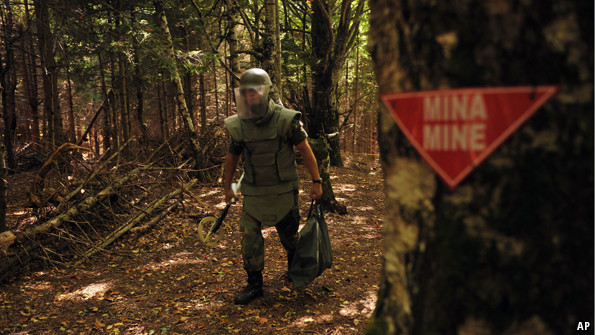
Σελίδες
Ξυπνάτε Έλληνες και δείτε...

- Ξυπνάτε Έλληνες και δείτε... (e-mail : eleytheroi_ellines@yahoo.gr)
- 1/1/2011 ----- Φίλες και φίλοι γειά σας. Ξεκινάμε μια προσπάθεια να βοηθήσουμε και εμείς όλους τους Έλληνες πολίτες να δουν μέσα και από το δικό μας Blog με άλλο μάτι (και όχι με τα μάτια των υποτακτικών Μ.Μ.Ε.) όλα αυτά που συμβαίνουν στην Ελλάδα μας και τα σχέδια που έχουν οι εντός και εκτός χώρας εχθροί μας… Αυτό το Blog δεν είναι Εθνικιστικό. Είναι απλά Ελληνικό και θέλει να δείξει τα κακώς κείμενα και την προσπάθεια που γίνετε για την εξόντωση της πατρίδας μας… Δεν έχουμε καμιά σχέση με Εθνικιστικές οργανώσεις, Μ.Κ.Ο. και λοιπά συναφή στοιχεία. Εμείς εδώ είμαστε μιά ομάδα οι οποίοι είναι ΑΠΛΑ Έλληνες και Χριστιανοί Ορθόδοξοι και θέλουμε το καλύτερο για τη χώρα μας και τους πολίτες της. Από αυτά που θα δείτε στην πορεία θα καταλάβετε πολλά και ελπίζω να σκεφτείτε λίγο τι και ποιοι είναι αυτοί που μας κυβερνούσαν και μας κυβερνούν εδώ και χρόνια, ποιος ο ρόλος τους και τι πρέπει να κάνουμε εμείς… Ελπίζουμε να μας τιμήσουν ΟΛΟΙ οι Έλληνες με τις αναγνώσεις τους και τα σχόλιά τους. Θα σας παρακαλέσουμε τέλος να διαδώσετε αυτό το χώρο σε όσους περισσότερους Έλληνες μπορείτε για να ενωθούμε ΟΛΟΙ μαζί και να αντιμετωπίσουμε τους Εχθρούς μας…
Παρασκευή 21 Φεβρουαρίου 2014
Economist : Διασύρεται ο Παπανδρέου από το σκάνδαλο των ΜΚΟ – μα το έκανε για τα “ελεύθερα Βαλκάνια”!

“Θα πρέπει να προσέχει ο Παπανδρέου τα
επόμενα βήματα του μετά το σκάνδαλο…”
SCARCELY a
week goes by in
Most of the
NGOs were set up with the approval of George Papandreou, then foreign minister (and later prime minister),
under the umbrella of Hellenic
One
organisation, the International Mine Initiative (IMI), set up to remove
landmines in
Some of the funds allocated for de-mining may have served another
purpose, according to security analysts in
Hardline Pasok activists were strong supporters of the Serbs during the
Yugoslav succession; during the premiership of Mr Papandreou’s father Andreas,
the party’s founder, Pasok provided financial and technical aid to the regime
of the late Slobodan Milosevic. Until he became a fugitive, Mr Karadzic was
welcomed by Greek officials when he visited
Mr Papandreou and Mr Rondos both deny wrongdoing in the NGO scandal. As
foreign minister, Mr Papandreou distanced himself from his party’s pro-Serbian
faction. After he became prime minister in 2009, with
Yet the
scandal is an embarrassment for Mr Papandreou, now a Pasok backbencher. It
could damage his chances of making a political comeback. And there will be more
heckling from Greek students attending his talks at universities in
Αναρτήθηκε από
Ξυπνάτε Έλληνες και δείτε... (e-mail : eleytheroi_ellines@yahoo.gr)
στις
12:38 μ.μ.


Αποστολή με μήνυμα ηλεκτρονικού ταχυδρομείου
BlogThis!Κοινοποίηση στο XΜοιραστείτε το στο FacebookΚοινοποίηση στο Pinterest
Ετικέτες
ΓΑΠ,
Ξένος Τύπος,
Ξυπνάτε Έλληνες και δείτε...,
ΠΑΣΟΚ,
ΠΡΟΔΟΤΕΣ
Εγγραφή σε:
Σχόλια ανάρτησης (Atom)

Δεν υπάρχουν σχόλια:
Δημοσίευση σχολίου